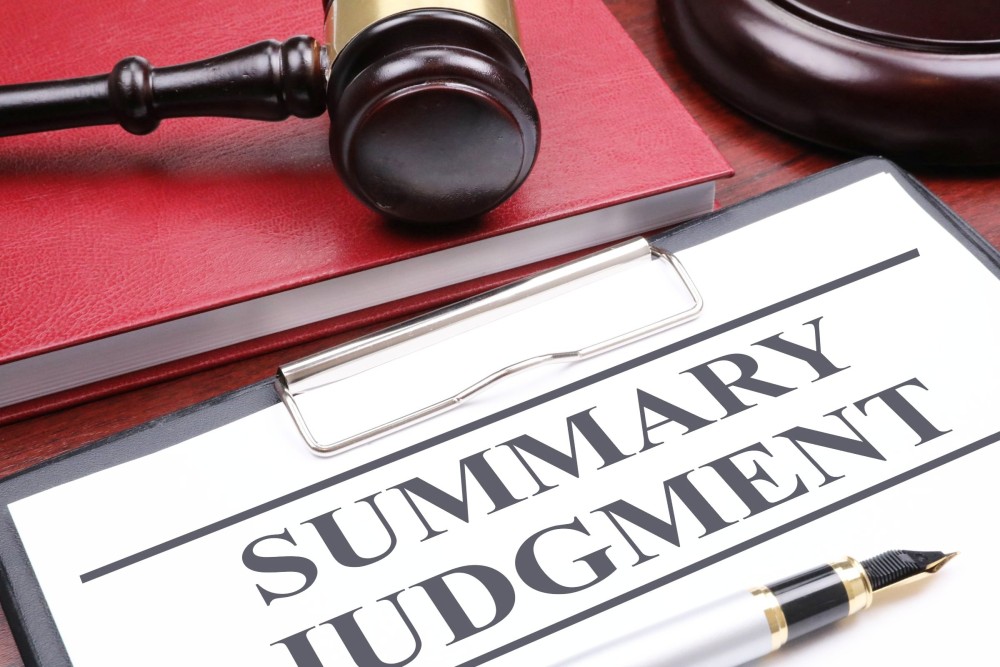Get Your Legal Documents Now!
Whether you are dealing with a complex family matter, facing criminal charges, or navigating the intricacies of business law, our mission is to provide you with comprehensive, compassionate, and expert legal guidance.

Wondering if discovery is required before filing a motion for summary judgment? Learn when discovery is necessary, what Rule 56(d) means, and how timing affects your chances of success.
Do You Need Discovery Before Filing a Motion for Summary Judgment?
Introduction
The motion for summary judgment (MSJ) is one of the most powerful litigation tools available in civil court. It can lead to a case—or part of a case—being resolved without trial. But timing is everything. One of the most common strategic questions is: Do you need to complete discovery before filing a motion for summary judgment?
The short answer: not always—but usually, yes. Courts require parties to support MSJs with admissible evidence, and most of that evidence comes through discovery. Filing prematurely can result in procedural delays, denials under Rule 56(d), or a weak case presentation.
In this article, we’ll walk through why discovery matters, what happens if it’s incomplete, and how to file a motion for summary judgment at the right time.
If you need help drafting your MSJ or planning the timing of your filing, Legal Husk provides expert legal drafting services at legalhusk.com and legalhusk.com/services/civil-litigation.
Understanding Summary Judgment and Evidence Requirements
A motion for summary judgment asks the court to rule on part or all of a case without a trial by showing:
To prove this, the movant must rely on:
Most of this supporting material is only available after completing at least some discovery.
Why Discovery Is Usually Necessary Before Filing
1. You Need a Complete Record to Win
Summary judgment decisions are evidence-based. Filing early limits your ability to:
2. You Must Anticipate the Opponent’s Arguments
Discovery helps you:
3. Courts Expect It
Judges are more likely to grant summary judgment when:
When Can You File Before Discovery Is Complete?
There are limited circumstances where early MSJs can be effective:
1. Legal Issues Only
If the motion turns entirely on legal interpretation and not factual disputes, discovery may not be necessary. Example:
2. Opposing Party’s Pleadings Are Insufficient
You may file early if the pleadings themselves show the claims lack merit. However, courts typically prefer Rule 12 motions (e.g., motion to dismiss) for these arguments.
3. Both Parties Agree on the Facts
In rare cases, both sides agree on key facts and only disagree on the law. Filing early may help streamline the case.
Understanding Rule 56(d): What Happens If You File Too Soon?
If you file a motion for summary judgment before the opposing party has completed discovery, they can respond with a Rule 56(d) motion (formerly Rule 56(f)) asking the court to:
To succeed, the opposing party must:
If granted, your MSJ may be denied or deferred, and you’ll lose credibility for filing prematurely.
How to Strategically Time Your MSJ Filing
1. Track Discovery Milestones
Wait until you’ve obtained:
2. Analyze the Opposition’s Case Weaknesses
Look for:
3. Follow the Court’s Scheduling Order
There’s often a deadline for dispositive motions. Make sure you:
4. Consider a Partial Motion
If only some issues are ready, file for partial summary judgment. This narrows trial scope and strengthens your position.
Tips for Filing a Strong Motion After Discovery
Mistakes to Avoid
How Legal Husk Can Help You File at the Right Time
At Legal Husk, we help plaintiffs and defendants file strategically timed and professionally crafted motions for summary judgment. Our services include:
You can purchase litigation-ready documents and services at:
Final Thoughts
Filing a motion for summary judgment before completing discovery is a gamble. In most cases, discovery provides the evidence you need to win—or at least to present a credible case. While early motions may be appropriate in limited legal scenarios, strategic timing aligned with strong evidentiary support offers the best chance for success.
📩 Need help drafting a strong, properly timed motion for summary judgment? Visit Legal Husk today to purchase expert legal drafting services and protect your position in court.
Whether you are dealing with a complex family matter, facing criminal charges, or navigating the intricacies of business law, our mission is to provide you with comprehensive, compassionate, and expert legal guidance.
Comments